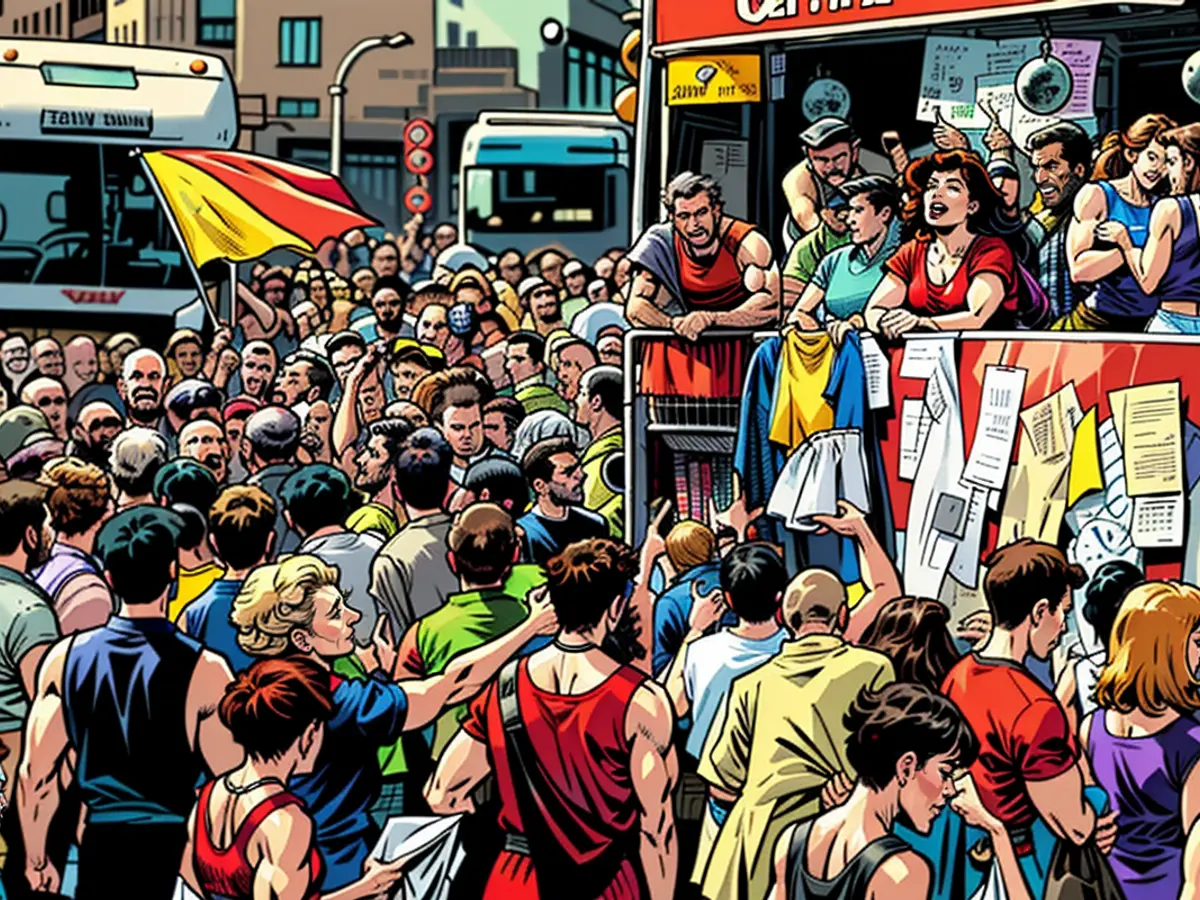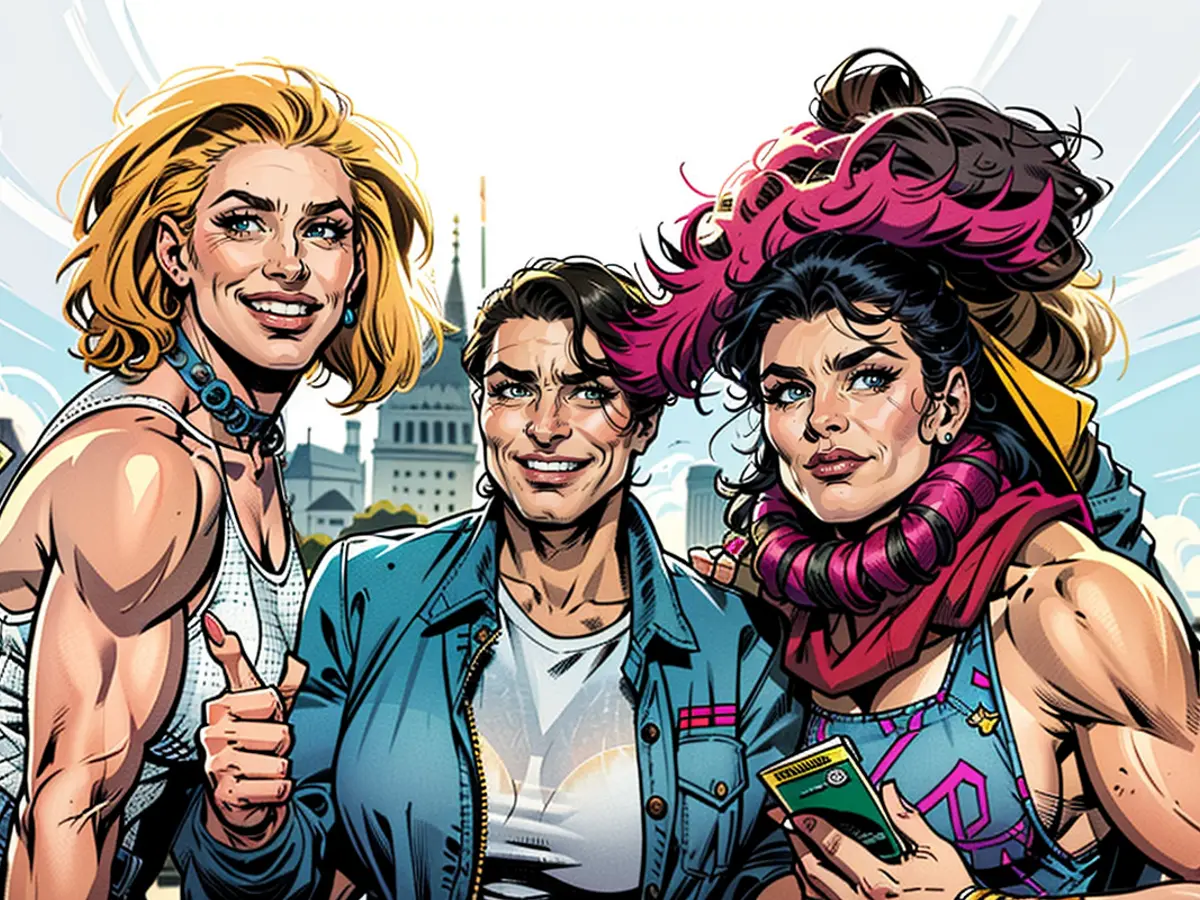Cologne Pride is so political as never before
The CSD has always been political. However, the pressure on queer people this year is a particularly big issue. Many politicians and celebrities marched for the rights of the LGBTIQ+ community at the Cologne Pride Parade - among them the twins Tom and Bill Kaulitz.
Colorful, loud, and political - over a million people set a sign for tolerance and diversity at the Cologne Christopher Street Day Parade. According to the organizers, approximately 1.2 million visitors and 1.4 million people attended the entire CSD weekend. The parade itself reportedly consisted of 65,000 participants and 250 groups, including 90 floats.
"This is the biggest CSD we've ever had," said Cologne Pride Board Member Hugo Winkels. State Minister Claudia Roth gushed: "Cologne is the most important CSD, not just in the country, not just in Europe, but it radiates around the world." The Kaulitz twins from the band Tokio Hotel also rode on one of the floats. In a WDR interview, Bill Kaulitz spoke about how liberating his coming-out had been: "I'm amazed at how many people come to me and find courage in my story," said the singer. "I lived the first years very privately and could never bring myself to share it."
Federal Health Minister Karl Lauterbach referred to the increasing number of attacks against queer people and the growing hatred towards them. "The CSD is an important demonstration for democracy, freedom, and the rights of queer people," said the SPD politician living in Cologne to the German Press Agency. "I find it impressive that we're seeing human rights being restricted within Europe." The CSD has therefore never been as political as it is now.
Queer People Lack an Explicit Protective Status

Bundestag President Bärbel Bas also said: "We notice that there are fascists and Nazis who want a rollback." They want to take away the rights and freedoms of the LGBTIQ+ community. We must resist this, said Bas. The Queer Commissioner of the Federal Government, Sven Lehmann, called for the inclusion of sexual identity in Article 3 of the Basic Law. Currently, Article 3 states that no one may be discriminated against or favored "because of their sex, their descent, their race, their language, their homeland and origin, their faith, their religious or political opinions."
Queer people are the last group that the Nazis persecuted who still lack an explicit protective status in the Basic Law, criticized Lehmann. In its current form, the Basic Law could not prevent human rights violations such as the abolished Paragraph 175 of the Criminal Code, which criminalized sexual acts between men until 1994.
"We need a two-thirds majority in the Bundestag and Bundesrat," said Lehmann. "I would like it if we could manage that before the next federal election, if we can create this protection in the Basic Law and thus prevent our rights from being taken away again." Drag queen Meryl Deep, who organized support for the CSD in the Saxon town of Pirna this year, also said that it was important to be loud and present in these times. "It's important to protect everything that has been achieved and not let ourselves be taken away." The increasing violence affects many social groups and not just the queer community.
A CSD event also took place in Rostock, where about 4200 people participated. With the CSD, we remember events from 1969 in New York: Police stormed the "Stonewall Inn" bar in Christopher Street and ended a weeks-long uprising of gay men, lesbians, and transsexuals.

In support of the LGBTQI+ community, numerous politicians and celebrities, including the Kaulitz twins, participated in the Cologne Pride Parade, making it an international event. Despite this, the rights and safety of queer people continue to be a significant concern, as highlighted by Federal Health Minister Karl Lauterbach and Bundestag President Bärbel Bas.






